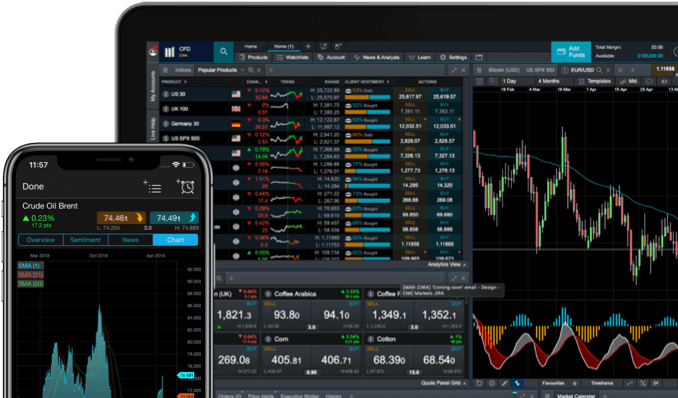*Tax treatment depends on individual circumstances and can change or may differ in a jurisdiction other than the UK.
**Awarded Best Spread Betting Broker, Good Money Guide Awards 2021; Best Forex Broker For Beginners, BrokerChooser Awards 2021; Best Retail CFDs Broker, Finance Magnates Awards 2020; Best Spread Betting Provider, The City of London Wealth Management Awards 2021; Best Trading Technology Provider, HedgeWeek European Awards 2021; Best CFD Provider of the Year, Shares Awards 2020; Best Forex Broker, Good Money Guide Awards 2020.
^No.1 Most Currency Pairs, ForexBrokers.com.
Disclaimer: CMC Markets is an execution-only service provider. The material (whether or not it states any opinions) is for general information purposes only, and does not take into account your personal circumstances or objectives. Nothing in this material is (or should be considered to be) financial, investment or other advice on which reliance should be placed. No opinion given in the material constitutes a recommendation by CMC Markets or the author that any particular investment, security, transaction or investment strategy is suitable for any specific person. The material has not been prepared in accordance with legal requirements designed to promote the independence of investment research. Although we are not specifically prevented from dealing before providing this material, we do not seek to take advantage of the material prior to its dissemination.

















